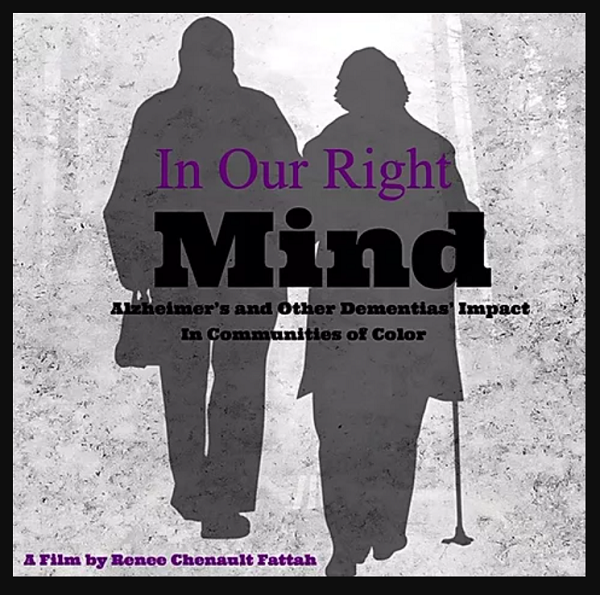Chenault-Fattah Gives BAYADA Lecture
May 12, 2020
 Tuesday, May 5, marked the beginning of the sixth year of the BAYADA Home Health Care Speaker Series. Since the series began in 2015, Drexel University College of Nursing and Health Professions has hosted numerous esteemed faculty, researchers and guest lecturers highlighting a variety of topics, trends and leaders in healthcare. However, this year was different. This year, the speaker stayed home. And so did the audience.
Tuesday, May 5, marked the beginning of the sixth year of the BAYADA Home Health Care Speaker Series. Since the series began in 2015, Drexel University College of Nursing and Health Professions has hosted numerous esteemed faculty, researchers and guest lecturers highlighting a variety of topics, trends and leaders in healthcare. However, this year was different. This year, the speaker stayed home. And so did the audience.
Due to the COVID-19 pandemic, this typically in-person event was held entirely online. 246 guests logged on to watch “Why People of Color Are More Likely to Develop Alzheimer’s Disease,” presented by Renee Chenault-Fattah, JD, the director of Pro Bono Action for Community Impact in PA for the SeniorLAW Center. After the lecture, the audience also screened Chenault-Fattah’s documentary In Our Right Mind: Alzheimer’s and Other Dementias’ Impact on Communities of Color.
Chenault-Fattah is, of course, best known in Philadelphia as a broadcast journalist and co-anchor for NBC 10. She acknowledged that she is no stranger to virtual presentations. “When I stopped and thought about it, I realized that virtually is actually how I did my job for some 30 years, as an anchor four times a day, bringing the news virtually. So in that sense, this kind of feels normal. Of course, on the other hand, there is nothing normal about the times in which we find ourselves living through this pandemic,” she said.
In 2015, Chenault-Fattah left NBC10. She confessed “I started thinking about what this next chapter in my life was going to look like. I knew that I wanted to continue to tell stories that made a difference, and Alzheimer’s turned out to be that story.” She was inspired by her own community. “As I was approaching 60, it seemed like overnight all of my friends were either becoming caregivers or they themselves were experiencing cognitive decline.” And so, she used her experiences and passion for journalism to capture the stories of families who were living with Alzheimer’s, caregivers and their communities across the country.
Alzheimer’s is the most common form of dementia, which is a broad term applied to a group of symptoms that impact the brain, including memory loss, inability to plan or carry through on complex tasks. It affects more than five million people in the U.S. and more than 50 million people worldwide.
This disease is the sixth leading cause of death, fifth among people over 65. However, it’s the fourth leading cause of death for African Americans. In addition, African Americans are twice as likely to develop Alzheimer’s. This raises the question: why are people of color disproportionately impacted? 
The biggest risk factor for Alzheimer’s is age. Prevention, treatment and care are becoming a more prevalent topic because currently, there are more people in the world over the age of 65 than there are under 18.
However, according to Chenault-Fattah, there is no single reason, but rather a multiplicity of factors. “What research tells us is that one of those factors has to do with underlying health conditions that increase your risk for Alzheimer’s,” she explained. These could be conditions such as diabetes, cardiovascular disease, stroke, high blood pressure and high cholesterol.
“Once you see that, then all of a sudden, it makes sense why communities of color would be impacted. We know that these co-morbidities are more common in communities of color,” Chenault-Fattah disclosed. These health disparities can be contributed to social determinants of health such as the ability to earn a living wage and access to quality, safe housing, education and healthy food.
Research has shown that diet, exercise, managing stress and getting sufficient sleep can reduce the risk of developing Alzheimer’s. “These factors that make us heart-healthy also keep our brain healthy,” shared Chenault-Fattah. Though, it’s important to note that 30 percent of dementias cannot be reduced by lifestyle changes.
 One of the goals for the documentary was to encourage more people of color to participate in clinical research. When the cure or effective treatment for Alzheimer’s comes, it's going to come from clinical research and people of color have to be a part of that pool, one in which they have been underrepresented. In the film, we hear from researchers of color, talking about various programs, clinical trials and clinical research in which they have been successful, both in attracting as well as retaining people of color.
One of the goals for the documentary was to encourage more people of color to participate in clinical research. When the cure or effective treatment for Alzheimer’s comes, it's going to come from clinical research and people of color have to be a part of that pool, one in which they have been underrepresented. In the film, we hear from researchers of color, talking about various programs, clinical trials and clinical research in which they have been successful, both in attracting as well as retaining people of color.
“If we tell the story of Alzheimer's as one of, well, there's no cure or effective treatment or if we tell the story of Alzheimer's without focusing on the people who are most affected by this, then that will shape the outcome and determine what we do,” she said. “Conversely, if we strive to tell the story of Alzheimer's as one of how to work with people living with the disease and the communities in which they live by supporting them with information and resources that's going to shape the outcome,” concluded Chenault-Fattah.
Written by Maggie McCrea